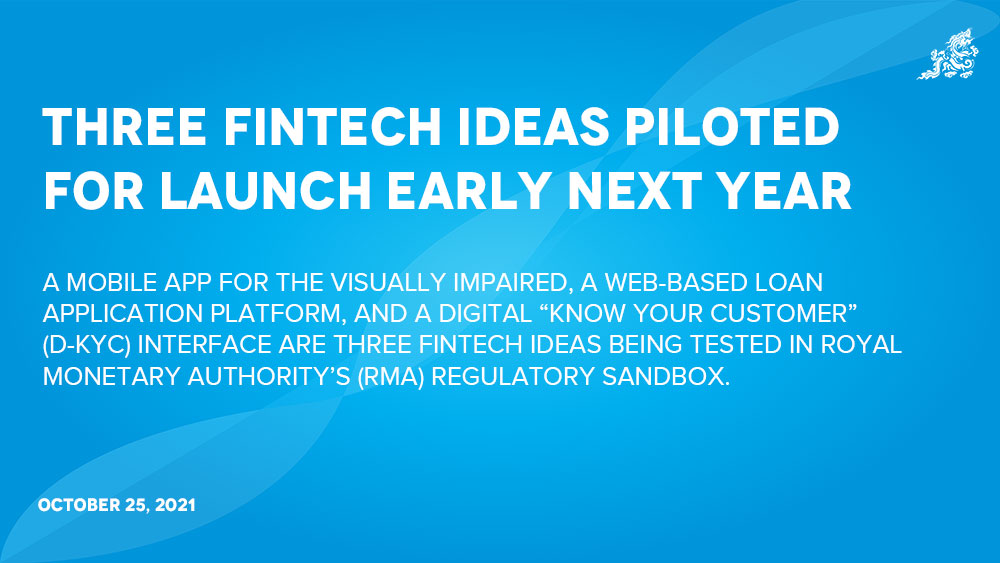Thukten Zangpo
A mobile app for the visually impaired, a web-based loan application platform, and a digital “know your customer” (D-KYC) interface are three FinTech ideas being tested in Royal Monetary Authority’s (RMA) regulatory sandbox.
A sandbox is a testing environment in a computer system in which new or untested software or coding can be run securely.
The solutions are tested before a wide-scale launch, carefully monitoring and containing the risks in the sandbox for six months. Upon successful testing ending by January next year, users can access the services.
The mobile app for visually impaired audiences will have integrated accessibility features, such as a voice-based currency readout of the Bhutanese currency Ngultrum denominations upon scanning.
An app developer from Bhutanbuy.com, Samir Pradhan said that the app will read new, old, soiled, damaged, and counterfeit notes, using machine learning and artificial intelligence technology.
The team plans to include other foreign currencies and to introduce optical character reading technology that can read the objects, letters, and numbers.
The D-KYC will enable seamless onboarding of customers who intend to open or maintain a bank account with financial service providers. Digital verification of the customers with the relevant agencies will be enabled by interfacing with the RMA’s centralized KYC database.
Yang Khor Private Limited chief executive officer Phub Gyeltshen said that all the financial service providers will be able to identify their customers using their unique know your customer (KYC) token number instantly. The customers will not have to submit KYC documents each time while establishing a financial relationship with a new financial service provider.
Phub Gyeltshen also said that the seamless D-KYC process will make account opening more secure and convenient through the use of mobile apps and web portals.
The D-KYC process would entail a series of screening and two-tiered validation processes such as document type identification, video call, biometrics, face matching, and liveliness detection to complete the entire D-KYC onboarding process, which is more secure, reliable, and efficient in terms of service delivery and security.
To apply for loans, the customers do not have to be physically present at the bank to check loan eligibility and for submission of a loan application or digital credit, the web-based centralised loan application platform will resolve it.
A developer from Soft Net Technology, Sonam Tobgay said that there is no centralised platform where borrowers can access the information, compare, and apply for loans offered by the various financial providers.
“Our solution will reduce the traditional loan application process by almost 90 percent,” he added.
Sonam Tobgay said the proposed platform would allow borrowers to access organized loan information, compare loan offers, check loan eligibility, and apply for loans instantly, anytime, anywhere. The civil servants would be able to avail of the service in the pilot phase.
Moreover, he said that the credit risk assessment solution will classify borrowers to determine creditworthiness, and each borrower will be classified as high- to low-risk customers. This is expected to achieve lower default rates and high-loan assets.
Director of the Information Technology Department, RMA, Sherab Jamtsho said that Covid-19 was the catalyst towards the transformation of financial technologies.
He added that it will promote and support local information and technology firms and start-ups in terms of talent, knowledge, and innovation in the FinTech space, and will build trust, safeguard, and ensure financial stability and integrity.
“With these solutions, the banks can focus on the core aspects of banking,” Sherab Jamtsho said, adding that they would help in enhancing access to financial services, foster new business opportunities to co-create and co-develop innovative products and services, and improve the existing systems and processes to support digital transformation.
Edited by Tshering Palden


